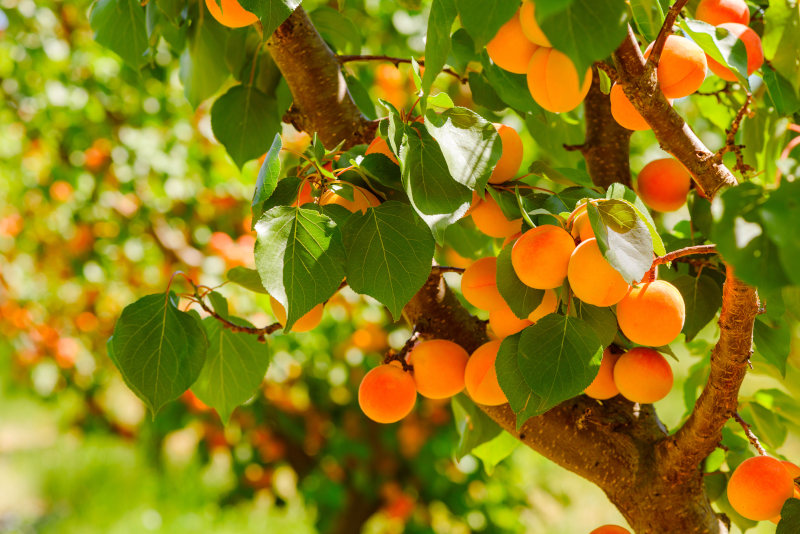Apricot trees are the first to bloom, and their fruit is ready and ripe for picking by early July. Apricots have a low crop every third or fourth year and some varieties, such as Tomcot and Goldbar are vulnerable to winter and spring frost. Before planting your apricot trees, determine how you want to use the fruit. Some varieties are perfect for back yard planting with small flavorful fruit and not considered to be a shipping cot (such as Tomcot).
Watch for hybrid varieties when you are at the nursery and make sure to buy two trees needed for cross pollination. Several hybrids are now available for commercial growing and shipping. To keep your trees healthy and boost apricot production for higher yields, pruning, pest control, appropriate watering and fertilization is essential.
Pest Control For Apricot Trees
Apricots are nutritious!
If you are thinking of removing your apricot trees, call us for safe tree removal, but you may want to consider a consultation with us first. From a nutritional perspective, apricots are rich in dietary fibre, contain essential vitamins and minerals and are rich in iron. Apricot oil, pressed from the kernel, is odourless and used for cooking and massage oil. The oil can be added to many body care products to soothe and heal rough, dry skin.
Apricots are one of our earliest ripening fruits and can be used in several recipes while we wait for peaches, cherries, apples and pears to ripen. Check out some recipes online for apricot jams, jellies, crisp bars, pies and tarts. They can also be successfully dehydrated for healthy snacks for the kids or storing. Apricots are an all-around treat for locals this time of year, so your trees may be worth saving.
Our management plans are flexible to accommodate single fruit trees or large commercial orchards. We have three locations to serve you – Kamloops, Sechelt/Gibsons and the Fraser Valley.
You may also want to read: Fruit Tree Pruning For Higher Yields

